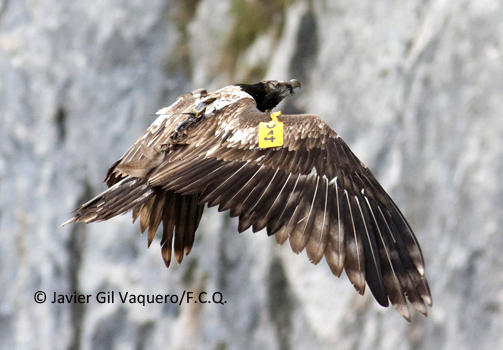New technological devices used for animal tracking have evolved at a tremendous speed. The new biologgers equipped with GPS and solar panels that download data using satellites or mobile networks seem unbeatable. They provide thousands of location of marked animals with meter precision and even in real time. But, do the data we collect provide an unbiased recall of what the animals have done?, of their movements?, of their behavior? The tracking data of Bearded vultures (Gypaetus barbatus) marked in the Pyrenees and the Cantabrian mountains with solar devices have been analyzed. They show that more locations do not always provide more information. The paper concludes that recorded locations should be analyzed carefully not to get a distorted picture of the Bearded vulture behavior. Tracking devices with solar panels depend on solar radiation to recharge their batteries. When insolation is low the devices do not fully recharge and more locations are lost. If this is not taken into account during data analysis we could have the false impression that the vultures move less at this time of year. This kind of tracking devices is essential for the Bearded vulture reintroduction project success. A tracking schedule that demands too many locations can cause the devices to run-out of battery, creating gaps in the data. The problem is that data are not lost at random: more locations are lost in winter than in summer; more are lost when vultures are in rugged versus flat areas; more when they are perched versus flying. Sometimes, complex interactions arise among behavioral and environmental factors creating difficult to correct biases. The GPS looses more locations when in a dynamic versus static state. This means that when the bird is flying the GPS requires more time to obtain a fix, but when perched the GPS loose fixes because an irregular topography precludes good visibility of the GPS satellite constellation. The biases in the locations that are lost determine that devices from different manufacturers may provide very different results on the daily proportion of time bearded vultures are on the wing. The researchers remark the importance of using devices that can be reprogrammed from a distance once deployed. In this way data acquisition can be readjusted to the amount of solar energy the device is able to harvest in the real environment. informacion[at]ebd.csic.es: Silva at al (2017) Seasonal and circadian biases in bird tracking with solar GPS-tags. PLoS ONE https://doi.org/10.1371/journal.pone.0185344
http://journals.plos.org/plosone/article?id=10.1371/journal.pone.0185344








 Las altas temperaturas están provocando que las lagunas y las marismas de Doñana pierdan agua rápidamente
Las altas temperaturas están provocando que las lagunas y las marismas de Doñana pierdan agua rápidamente



